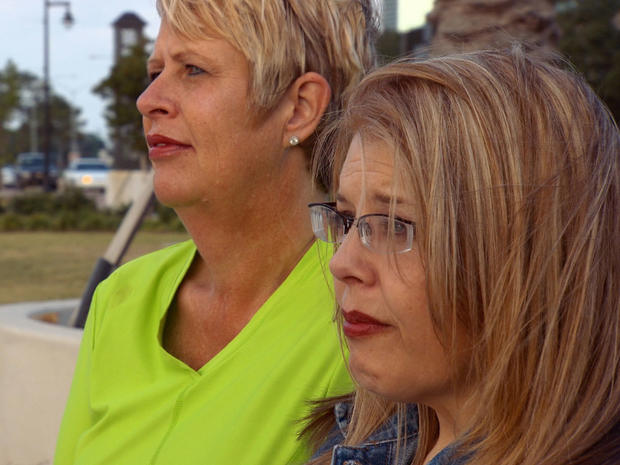48 Hours preview: Dial "C" for conviction
(CBS) Robyn Davis and Carol "Sissy" Saltzman are probably the most likable -- and the most unlikely -- murder defendants you will ever encounter. Blonde and middle- aged, the close friends finish each others' sentences and appear honestly perplexed by their situation. In April of this year, they went on trial in Lake Charles, La., for the murder of Robyn's husband, Brian, found shot to death by his car in an isolated road more than three years earlier. Both women deny they had anything to do with Brian's death.
48 Hours: Watch a sneak peek of Saturday's show
Investigators in Calcasieu Parish, where the murder occurred, refer to the two women as "Thelma and Louise," a nod to the 1991 movie in which actors Geena Davis and Susan Sarandon play best friends who kill a man. In this case, investigators say Robyn Davis enlisted her best friend to kill Brian in order to collect on more than half a million dollars in life insurance.
Apart from the alleged motive, the case against the women is purely circumstantial. There is no physical evidence to tie either woman to the crime. There are no eyewitnesses. What's more, Brian Davis was a serial philanderer. He may have had a few enemies of his own. And defense attorneys Glenn Vamvoras and Shane Hinch, accuse investigators of losing crucial evidence, including a videotape that might have been exculpatory.
So what made investigators charge the women with murder? Something that more and more prosecutors are using successfully in court: cell phone records. Cell phone data has been used to track suspects since the late 1990's, but as the hardware has become more sophisticated, information obtained from phones has become crucial evidence in criminal trials.
Many cell phones today contain GPS technology that records the callers' location, but even without a GPS, every time someone uses a phone, to either make a call or receive one, a transmission is made to a cell tower in the area. The phone companies keep records of all those transmissions. And because the cell phone of a typical adult reveals anywhere from 20 to 55 locations a day, investigators can sometimes track a person's movements hour by hour.
There were more than a million requests from federal, state and local authorities for cell phone records to wireless carriers in 2011. And they don't always need a warrant to obtain those records. According to a story reported in the New York Times, AT&T alone responds to an average of more than 700 requests a day, with about 230 of them regarded as "emergencies" that do not require the normal court orders and subpoena.
This evidence comes in handy in cases where there are no eyewitnesses. They can prove a person was in the area where a crime was committed or simply contradict where the suspect claimed he or she was at the time.
In the present case, both Robyn Davis and Sissy Saltzman agreed to be interviewed by police, without attorneys present and said that they had never been anywhere near the crime scene area. But police say that their cell phone records dispute that. Instead of sitting at home waiting for Robyn to pick her up, as Sissy claimed, her records indicate that she was outside driving around. Authorities say Robyn Davis's cell phone records show that on the afternoon that Brian disappeared, Robyn was just a 1/2 mile to five miles from the crime scene, not 10 miles away at either her home or Sissy's. The records can't pinpoint exactly where either woman was -- but just contradicting a suspect's story can lead to a conviction in court.
But just how reliable is this evidence? While investigators want to refer to cell phone evidence as 'digital DNA', it is not nearly as definitive. The truth is, phone calls aren't always handled by the closest tower. When one is 'overloaded', calls may be routed to another tower. Calls can even be handled by different towers when a person making the call is standing in one location.
Defense attorneys for Robyn Davis and Cissy Saltzman hired an expert to raise doubts in the minds of the jurors about reliability of cell phone evidence, but they were up against an FBI expert who is part of a special government team specially trained to analyze and testify about cell phone data.
Cell phones are a necessary part of modern life. Most of us can't imagine leaving the house without one, but they also serve as silent witnesses to our lives and their "voices" may be the last word in the courtroom.

